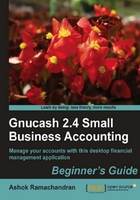
"…over the past few years running our online wedding business, I have come to realize that while keeping accurate numbers is boring, analyzing the numbers is actually fun and eye opening!"—from a successful small business owner's web site.
As a small business owner, you may rely on gut feelings to make some important decisions. Some of those decisions can make or break a small business such as yours. It is prudent to challenge and validate those decisions by collecting more facts and figures. It doesn't mean that you should abandon the value provided by the gut feelings and intuition that you bring to your decision-making every day. It simply means that you are going to have to start validating it with more data.
Some of that data on who needs your product or service will come from outside your business in the form of market intelligence and demographic data. However, a more important source of information about the revenue and costs of your business is buried right under your feet in the form of – drum roll please – bookkeeping data. Having come to that realization, aren't you thrilled that you are two steps ahead in that game? We already have a firm grip on setting up the accounts and capturing the bookkeeping information. The reports and charts that we will cover in this chapter provide you the tools necessary to extract this buried treasure and leverage it to operate and grow your business.
So, having survived the bookkeeping part, we are now ready for the fun and eye-opening part. In this chapter we will cover how to:
- View standard reports
- View the data visually in chart form
- Create custom reports and save them for repeated use
- Customize style sheets and use with reports
- Export reports for use in spreadsheets
So let's get on with it...
Tip
Recovering from the unexpected
While you are working in GnuCash, it may happen that Windows shuts down unexpectedly, GnuCash crashes, or there is a power failure. If any of that happens, and later you try to restart GnuCash, you may see a message like, GnuCash could not obtain the lock for file…That database may be in use by another user… Don't panic. There is no need to call in a private detective to check who is accessing your accounts behind your back. We saw earlier that whenever you open an accounts file, GnuCash creates a lock to avoid another person opening that file at the same time. When the unexpected shutdown occurred, chances are, GnuCash didn't have time to clean up this lock in an orderly manner.
If you are sharing this GnuCash accounts file with others, check whether someone else is working on it. Once you have made sure no one else is working on it, or if you are the only person who has access to it, you can select Open Anyway. Also don't forget to double-check that the transactions you entered just before the crash have been saved.